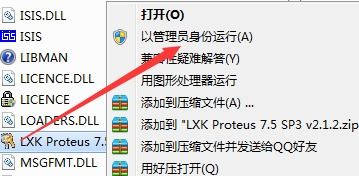Introduction to the Importance of Continuous Practice
Learning a new language is a journey that requires consistent effort and practice. One of the most effective ways to enhance language skills is through continuous practice, particularly through extensive做题. This article delves into the significance of做题 in language learning, its benefits, and how it can be incorporated into your daily routine.
The Role of做题 in Language Acquisition
做题, or doing exercises, is a cornerstone of language learning. It serves as a practical application of the theoretical knowledge acquired through textbooks and classes. By engaging in做题, learners are exposed to various language structures, vocabulary, and grammar rules, which are essential for effective communication.
做题 helps in reinforcing what has been learned and provides immediate feedback. It allows learners to identify their strengths and weaknesses, enabling them to focus on areas that require improvement. This targeted practice helps in building a solid foundation in the language, making it easier to progress to more complex concepts.
The Benefits of Continuous做题
One of the primary benefits of continuous做题 is the improvement in language proficiency. Regular practice helps in honing reading, writing, listening, and speaking skills. Here are some specific advantages:
Reading Comprehension:做题 often involves reading passages and comprehending their meanings. This practice enhances vocabulary, understanding of idiomatic expressions, and the ability to infer meanings from context.
Writing Skills:Completing exercises that require writing, such as essays or summaries, helps in developing grammatical accuracy, sentence structure, and the ability to express thoughts coherently.
Listening Skills:Listening exercises, such as listening to dialogues or audio recordings, improve the ability to understand spoken language, pick up on nuances, and respond appropriately.
Speaking Skills:Engaging in speaking exercises, such as role-plays or debates, boosts confidence and fluency in conversational situations.
Moreover, continuous做题 fosters a deeper understanding of the language culture and helps in appreciating the subtleties of language use.
Types of做题 for Language Learning
There are various types of做题 that cater to different aspects of language learning. Here are some common ones:
Grammar Exercises:These exercises focus on identifying and correcting grammatical errors, such as tense consistency, subject-verb agreement, and preposition usage.
Vocabulary Exercises:These exercises help in expanding vocabulary by practicing word formation, synonyms, antonyms, and word meanings.
Reading Comprehension Exercises:These exercises involve reading texts and answering questions based on the content, improving reading speed and comprehension.
Listening Exercises:These exercises test the ability to understand spoken language and often include listening to audio recordings and answering questions.
Writing Exercises:These exercises encourage writing skills through tasks such as writing essays, summaries, or even creative writing.
Conversational Exercises:These exercises simulate real-life conversations and help in developing conversational skills.
Strategies for Effective做题
While做题是语言学习的重要部分,以下是一些策略,可以帮助你更有效地利用做题时间:
Set Realistic Goals:Establish achievable goals for each session to stay motivated and focused.
Varied Practice:Combine different types of做题 to keep the learning process engaging and comprehensive.
Time Management:Allocate specific time slots for做题, ensuring consistency in your practice routine.
Review and Reflect:After completing exercises, review your answers and reflect on your mistakes to understand areas for improvement.
Seek Feedback:Don't hesitate to ask for feedback from teachers, language partners, or online communities to gain insights into your progress.
Stay Consistent:Regular practice is key. Even short, daily sessions are more beneficial than sporadic, lengthy ones.
Conclusion
Continuous做题 is a vital component of language learning
转载请注明来自浙江之讼律师事务所,本文标题:《不断做题的英文,不断写作的英文 》
















 沪ICP备2020035651号-1
沪ICP备2020035651号-1
还没有评论,来说两句吧...